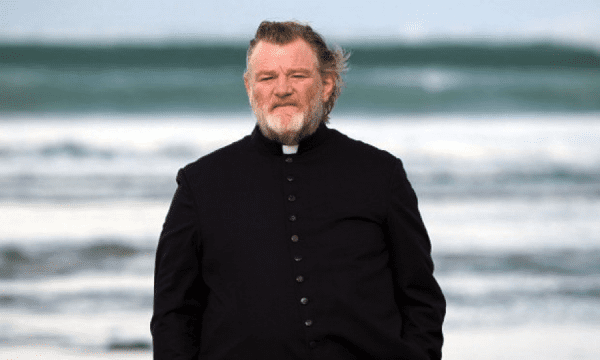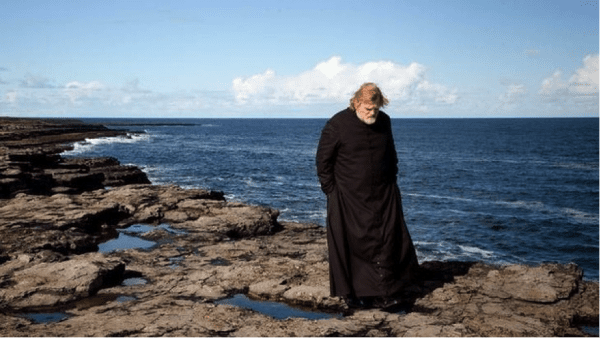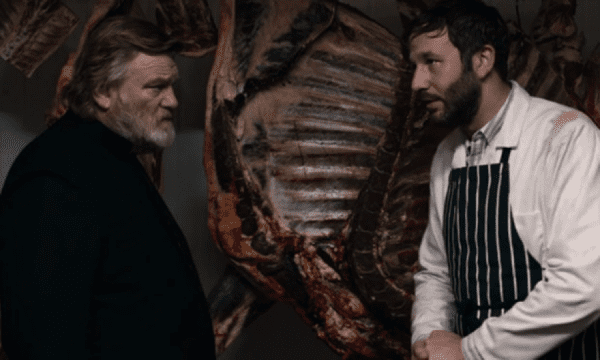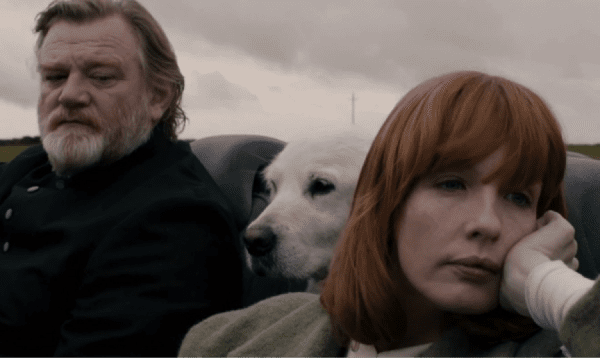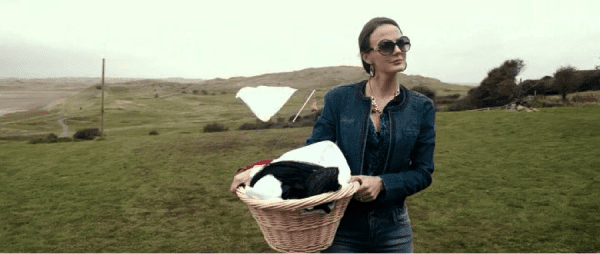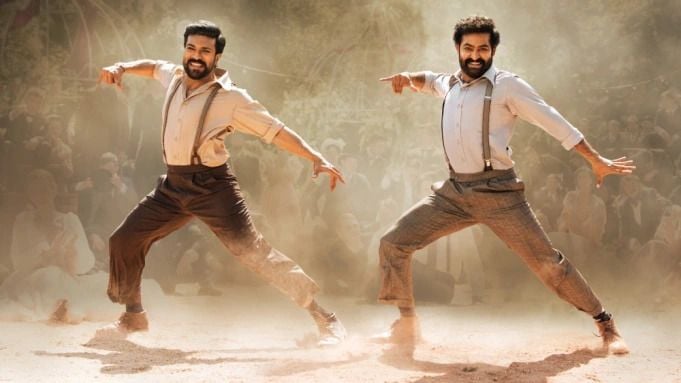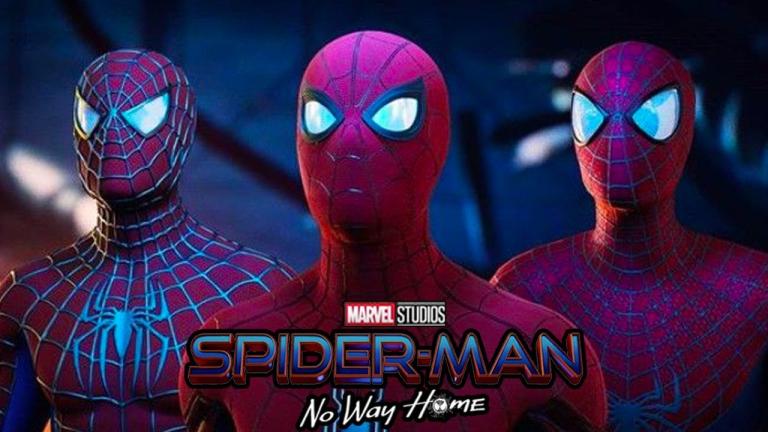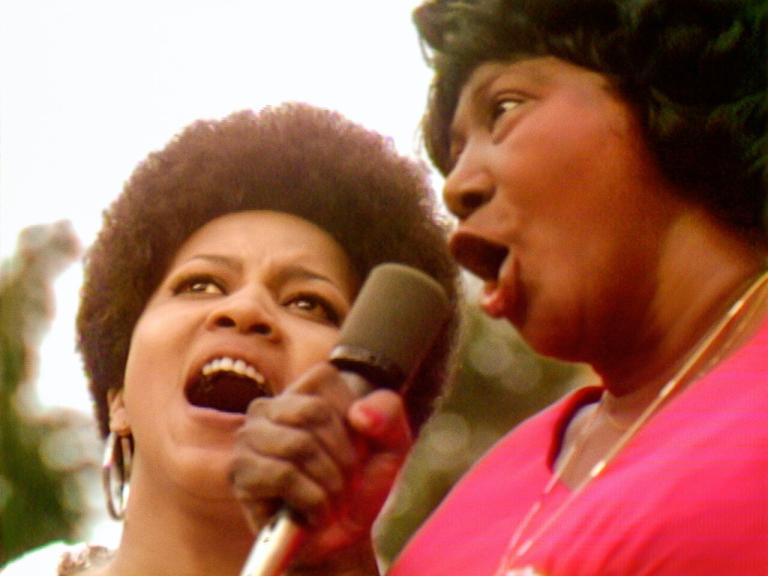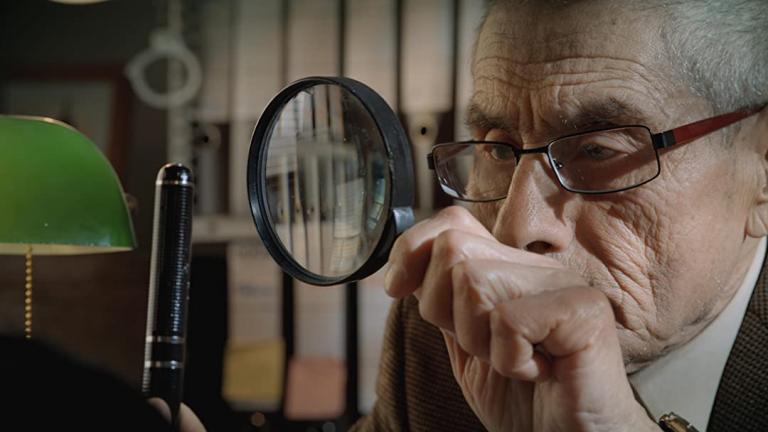How shall the Roman Catholic Church pay for her sins? Legal judgments have been rendered and financial compensation awarded to the victims. And yet, nobody seems too satisfied. The specter of sin still lingers in the church rafters.
In his short tenure, Pope Francis has done so much to repair the tarnished image of the Roman Catholic Church. His surprising acts of kindness have superseded the reports we’d come to dread of another cover up of another priest in another parish. Pope Francis has demonstrated that goodness can still arise amidst the most fallen institution.
We may have countless examples of priests who abused children, but what of the faithful priest who never molested anyone? Who faithfully heard confessions and granted absolution, who administered last rites, and distributed the body of Christ from Sunday to Sunday? The tough, uncompromising new movie, Calvary, portrays just one everyday hero, the local priest who fulfills his vows and remains loyal to his calling despite the temptation to despair.
Brendon Gleason portrays Father James Lavelle with a quiet strength and dignity that is so admirable. Father James’ wry sense of humor is small consolation amidst his isolated parish on the northwest coast of Ireland. He cuts a striking figure in his long black cassock amidst the rugged, windswept beach. The weight of his corner of the world weighs heavily upon his shoulders.
Calvary is about the high cost of following God and serving others. It dignifies the priesthood while acknowledging the massive collateral damage caused by pedophiles wearing a collar. Calvary documents the wages of sin, the human cost of using and abusing each other. It is fresh, darkly funny, and tragic. For those who long for authentic portrayals of faith, dignity, and sacrifice, Calvary is a rare and precious cinematic experience. Brendan Gleason delivers a powerful, Oscar-worthy performance as the priest who dares to respond to pain and suffering with grace. As with the priesthood, this movie is not to be entered into lightly, but with reverence, respect, and anticipation. Writer and director John Michael McDonagh has crafted a story that resonates long after the credits roll.
Calvary is set in County Sligo, home to celebrated poets like William Butler Yeats. We’ve seen quaint coastal villages like this onscreen before. Loveable eccentrics hold court at the local pub. An awkward teen feels trapped in his small town eager to get out. A brilliant writer plays out his final years in relative quiet and obscurity. Amidst the dramatic surfside, Calvary adds much more bite. A wife is abused by her husband (or her adulterous partners). A doctor ascribes to no belief beyond nihilism. The richest man in town tries to buy some peace of mind for his financial indiscretions. This is the parish that Father James serves.
The locals torture Father James with their ad hoc confessions. They may spill their secrets on the beach, at the town hall, over a pint. Serving others is definitely a full time job, a calling not for those inclined to hide behind rose-colored glasses.
The priest is not alone, but his younger, priestly colleague finds it a bit too depressing. Perhaps he has not lived enough to be helpful. Father James on the other hand, has walked through a series of trials prior to the priesthood. He has a suicidal daughter, downplayed with great empathy by Kelly Reilly. Father and daughter are still in grief over the death of a beloved spouse and mother. After turning to too much drink, James found a second chance in God. But in responding to the call, he may have inadvertently abandoned his daughter.
Calvary explores what Dietrich Bonhoeffer described as “the cost of discipleship.” Bonhoeffer reminded us that “When Christ calls a man, he bids him come and die.” Calvary begins with a death sentence for this faithful priest, not in a court of law, but in a confession booth. A victim of a pedophile priest admits that he cannot shake the abuse committed against him so many years before. He announces his plans to do something noteworthy, to murder James, his very good parish priest in seven days. We do not see the victim, only Father James’ response to this shocking confession. Calvary is a mystery, a “who will do it,” rather than a whodunit.
While Father James affirms that “God is great” and “the limits of his mercy have not been set,” the people in his parish (beyond his presumed murderer) test his capacity to forgive. He visits a young prisoner who has raped and killed young women. Should God forgive such a monster? Doesn’t that make some kind of mockery of justice? Bonhoeffer railed against cheap grace that is too fast, too easy. He wrote, “Cheap grace is the preaching of forgiveness without requiring repentance, baptism without church discipline, Communion without confession.” Father James will not dispense cheap grace.
In ancient Israel, the collective sins of the priests and the people were dealt with during Yom Kippur, the Day of Atonement. A time of repentance and confession was accompanied by the sacrificing of a bull and a goat. Blood was spilled and sprinkled throughout the Holy of the Holies within the temple. The sins of the people were cast upon a goat who was released to the wilderness. From this ceremony, we get the term, ‘scapegoat.’
Some saw the death of Jesus on the cross at Golgotha as the ultimate act of collective atonement. In his sacrifice, Jesus played the role of both priest and bull, bloodied goat and innocent scapegoat upon whom the collective sins of humanity fell. The Latin word for Golgotha is where we get the English term, calvary. Father James is presented the way of the cross in the opening scene. The guilt of other priests is cast upon him. How will he answer this call to sacrifice?
This is a film about our need for atonement. The longing for mercy and forgiveness haunts almost every frame of Calvary. Blood will be spilled, but hopefully it will expunge so many sins. Director James Michael McDonagh and Father James ache with humanity, with abused children and wives. At one point, the battered wife reveals her bruises and asks the priest, “Can you find beauty in all things?”
Calvary is an attempt to expiate the painful reality of pedophile priests and find beauty even amidst the darkest human actions. It explores the twisted road towards the cross. Calvary is a tough film to choose amidst a summer of superfluous sequels. But it is a rewarding journey for those who have eyes to see and ears to hear.

